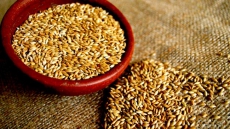Are you sitting down right? Well, you might want to stand up.
Research has shown the amount of time one spends sitting in a day is associated with not only a higher risk of cardiovascular diseases but also type-2 diabetes, cancer and cancer-related deaths.
“We believe there are several factors,” as to why, says Dr. Jeff Vallance, associate professor and Tier II Canada research chair in Health Promotion and Chronic Disease Management with Athabasca University, “and given this area of research is fairly new, we are still exploring the mechanisms regarding sitting and increased chronic disease risk. Our data has even linked excessive sedentary time with psychosocial health factors like depression.”
Considering it is estimated adults spend more than half of their waking hours sitting, whether it be at a desk, on the couch, eating or commuting, it’s unnerving to think we are putting ourselves at risk every day with normal, necessary and seemingly harmless activities.
While you may think you’re resting after a rough workout or feeling productive after a good day at the office, we may actually be worse from too much time spent on our bottoms.

BRAIN
We rely on movement to pump oxygen and blood throughout our bodies and this includes our brain. Sitting for long periods of time slows this process and slows our brain’s function as the release of brain- and mood-enhancing chemicals isn’t being triggered.

“Physiologically, sitting for too long may slow down the body’s metabolism, affecting blood sugars and blood pressure. This can lead to weight gain. From a behavioural perspective, when somebody is sitting for too long, other behaviours that may be health-enhancing, such a light, moderate or vigorous intensity movement is not happening. So to put it simply, sitting replaces health-enhancing activity,” says Vallance.
It’s not necessarily just the act of sitting that is unhealthy but the dangers of a lifestyle that accompanies an abundance of inactivity.
“We are referring to prolonged and excessive sitting when referring to these negative health outcomes,” explains Vallance. “Of course, some sitting (like sleep) may have restorative functions. Research has not quite yet pinpointed a particular cutpoint as to when sitting becomes hazardous. It would depend on the individual, and their overall daily activity pattern.”
Evaluating your daily movement may be the first step of many more to come.
“People need to learn to incorporate physical activity into their day. Being sedentary all day, and taking a few standing breaks, with no exercise throughout the day, is not an ideal solution,” he says. “We often see what I think are overly simplistic recommendations to break up sitting, such as walking to deliver a message to your colleague, or walking around the office. While this is a start and certainly won’t hurt, I think people need to make bigger, lifestyle changes. These active and/or standing behaviours need to become habit.”
Vallance suggests that active commuting, standing workstations and activity monitors encourage a more permanent lifestyle change. You may need to start by setting an alarm or downloading an app to remind you to stay active but you’ll soon find yourself with healthy habits that counteract all your time spent sitting.
Don’t just sit around until it’s too late; stand up for your health by moving to improve it.




